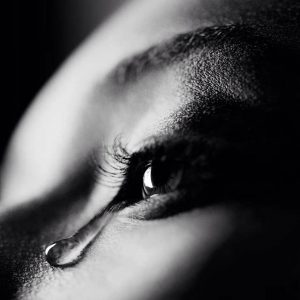What is depression and what is not?
As Paul Keating said in the remarkable interview with Kerry O’Brien in 2013:
There is a place for sadness and melancholy.
His father died suddenly at the age of 60. He’d walked down the street to put a bet on the races and “he died sitting on the side of the road”. Keating was washing the car when someone came along looking for his father’s house. It was a decade before be could even talk about it. “It’s always with me. You kind of never get over it. But you never want to get over it.”
“We don’t want to be sparkling and happy all the time. You need the inner life, the inner sadness. It is what fills you out”
What is depression and what is not?
The official diagnostic guidelines for all mental illnesses are currently under close scrutiny. Generally, any doctor or psychiatrist will work from the assumption that all mental health problems are caused by chemical imbalance of the brain, consequently they will prescribe chemicals.
However, the understanding and definition of “depression” has vastly changed even compared to best practice just 10 years ago. The “diagnosis” of depression and prescription of anti-depressants has become epidemic.
There are many factors that can cause depression and other mental difficulties: years of exhaustion, frustration, unexpressed feelings like genuine and appropriate fear, sadness and grief. Society has become increasingly intolerant to proper and timely expression of feelings that once used to be considered normal and healthy. Spontaneity and openness are more and more perceived as threatening. It used to be that “real men don’t cry” now women and children have joined them. Having to be “in control”, “getting on with life” and the demand of “functioning” even in the face of serious problems are internalised and paired with the immense pressure of needing to be happy and “positive” at all times.
In fact, the rise of the happiness industry has come as a by-product of the suppression of emotions at all costs. There is only a certain range of feelings that you are allowed to have or show. In an environment where behaviour that is not the norm will be sanctioned and labelled and ultimately medicated, most people cave in, which in itself is the first layer of depression. Withdrawal and isolation, lack of closeness, trust and kindness starts eating away at the heart and the mind. Proper, healthy and timely feelings like sadness, grief, frustration, fear are medicalised and thereby prolonged and distorted. Even joy and happiness have become mere commodities and can only be experienced and expressed according to the permitted levels and cemented conventions.
Resist the temptation to medicalise your unhappiness or frustration
If you are under prolonged stress and without proper rest (some people do not even get to eat in peace), you will suffer from anxiety and find it hard to get good quality sleep: YOU ARE (still) NOT DEPRESSED. Try to look at the multiple causes for your stress and anxiety. It might seem a mountain yet when you look closely it almost never just one thing. It is perfectly normal and even healthy to not cope with exaggerated demands. What might need change is your schedule, your expectations – be they your own or your families – and perhaps even your priorities?
Taking anti-depressants in a situation like this often just means creating new problems: weight gain, apathy, numbness, suicidal thoughts along with the belief that you cannot change your inner and outer circumstances.
Instead take a break. It does not necessarily need to be a long one. Contemplate what is important to you, feel what you truly feel, and remember how you got there.
This week the Sydney morning Herald ran an article on how the reasons for suicide are more often than not just the wish to escape pain, feared or real poverty, loneliness and other circumstances that seem to be out of our control.
See a counsellor, or a trusted friend, or stranger, and express how you feel. Not every situation has a solution. If your loved one has died it is natural to feel grief. How long that might last depends very much on the individual. There is no hard and fast rule. Feeling pain and being anxious is actually very normal. Accepting it will often reveal a new life.
Massage, acupuncture, herbs, Tai chi, yoga and meditation can very much support you and give you strength when nothing seems to work.

